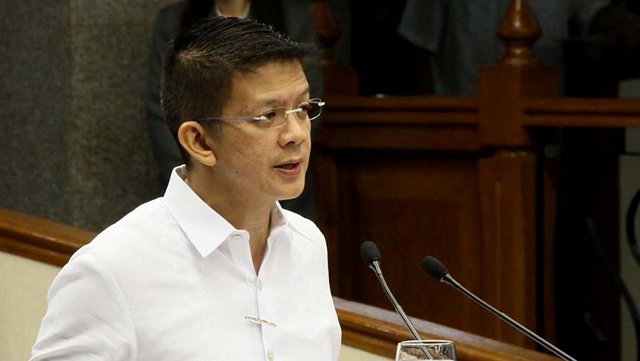(Eagle News) — The Integrated Bar of the Philippines has asked the Supreme Court to reverse its decision that nullified Maria Lourdes Sereno’s appointment as Chief Justice, saying the decision “has taints of political considerations and personal biases,” among others.
In a 16-page motion for reconsideration, the IBP–which earlier filed a motion to intervene in the Sereno case that was eventually junked by the High Court–also stressed that the issue of whether or not she should be ousted “is a political question which can only be resolved through the political remedy of impeachment.”
The IBP said the SC “went beyond its authority” when it “made independent findings of fact, replaced the (Judicial and Bar Council’s) findings (determining Sereno was fit to apply for the post of Chief Justice) with its own, settled the status of the validity of the respondent’s appointment, and caused the ouster of the Chief Justice of the Supreme Court.”
In the first place, the IBP said that while Section 8 (1), Article VIII of the Constitution “places the JBC under the (Supreme Court’s) supervisory authority, such authority does not extend to the modification or replacement of acts of those it supervises .”
“…An authority exercising supervision does not have discretion to modify or replace acts. Further, a supervising authority cannot substitute its own judgement for those made by the subordinate as that amounts to an exercise of control,” the IBP said.
“Reversible error”
According to the IBP, the Supreme Court also “committed reversible error in making a factual determination of whether or not” Sereno submitted her (Statements of Assets, Liabilities and Net Worth) for the years that she has been in government service.
The finding became the basis for the SC ruling she lacked the integrity required of an applicant to the Chief Justice post, which therefore means her appointment should be nullified.
According to the IBP, the making of such a determination was “outside” the “turf” of the High Court, which is “not a trier of facts.”
“It is not its duty to embark on an examination and evaluation of evidence in cases before it. Hence, the Honorable Court has consistently refused to assume this role, best left to the trial courts as its duty, ultimately, is to decide on questions of law and not of fact,” the IBP said.
The SC, it added, “failed to maintain the cold neutrality of an impartial judge when it engaged in its own evidence-gathering expedition and sought to supplement the evidence already on record.”
The IBP said the Supreme Court, through the Office of Justice Noel Tijam, for instance, “sought for a copy of minutes of a meeting of the Executive Committee of the (JBC).”
“In other words, the Honorable Court not only assumed the role of a trial court; it even became an advocate and assisted the petitioner in discharging its burden of proof,” the IBP said.
“Wherefore, intervenor IBP respectfully prays that the Honorable Court reverse and set aside its decision dated May 11 2018, and that a resolution be issued denying the petition for quo warranto against (Sereno),” the group added. Moira Encina







